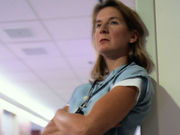Burnout prevention, intervention needed to avoid negative impact on quality of care
WEDNESDAY, July 13, 2016 (HealthDay News) — Critical care health care professionals have one of the highest rates of burnout syndrome (BOS), compared to other health care professionals, according to a call-to-action statement published in the July 1 issue of the American Journal of Respiratory and Critical Care Medicine.
Marc Moss, M.D., and colleagues from the Critical Care Societies Collaborative define BOS as a state of emotional, mental, and physical exhaustion caused by excessive and prolonged stress. In the statement, they review the diagnostic criteria, prevalence, causative factors, and consequences of BOS, and explore potential interventions to prevent and treat BOS.
The authors note that between 25 and 33 percent of critical care nurses manifest symptoms of severe BOS, as do about 45 percent of critical care physicians. Risk factors for BOS can be categorized by personal characteristics, organizational factors, quality of working relationships, and exposure to end-of-life issues. BOS can lead to personal issues in critical care health care professionals, such as posttraumatic stress disorder, alcohol abuse, and suicidal ideation. BOS also leads to turnover, decreased effectiveness, and poor work performance, which have a direct impact on patient care. While there are no large randomized controlled trials that have examined potential interventions, potential strategies can be categorized as those focused on enhancing the intensive care unit environment, and those focused on helping individuals cope with their environment.
“Everyone has a part to play in decreasing burnout syndrome,” Moss said in a statement. “A full collaborative effort is required among researchers, educators, professional societies, patient advocacy groups, funding agencies, policy makers, and ourselves as critical care health care professionals.”
Copyright © 2016 HealthDay. All rights reserved.








